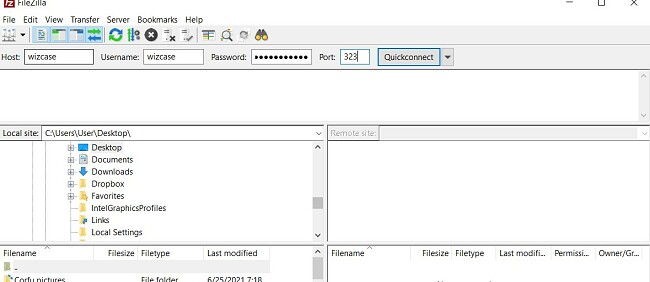
You need a server to host your website. It allows you to store your website on disk space as well as bandwidth. Hosting providers that are reliable will provide customer support. Without support, your website will likely crash and lose visitors. Support is an important aspect of hosting. Read on to learn about some of the features to look for in a hosting plan.
Hosting is the storage space you need for your website
Web hosting is where you rent space on a server to host your website. This space will be used to store all files on your site. It will also store your website's DNS Server or other software. The size of this space will depend on the type of site you are running and its content. The more content you have on your website, the more space you need. Some web hosting packages include as much as 10GB of disk space, a domain name for free, and 50 email addresses.
Web hosting requires a certain amount of disk space on the server, which you'll need to keep all of your website files. This is different to bandwidth, which refers to the data visitors can access on your website. Before you sign up to web hosting, you should verify the amount of disk space you require.
It gives you bandwidth
A website's bandwidth is an important factor that will determine its success. Accessing enough bandwidth can make visitors feel better and reduce bounce rate. A good hosting plan includes a variety of bandwidth options, and each host has a plan that suits the needs of a specific type of website. A small website may need only a few gigabytes of bandwidth to get started, while a larger site might need more bandwidth for increased traffic.

Bandwidth is how much data can be transferred between websites. Documents, emails and even videos can all be included in this category. There are many hosting companies that offer different bandwidth plans. These range from daily, weekly and monthly. It is important to estimate how much data you will transfer each monthly in order for you to determine the needs of your website. You'll have to pay an additional monthly fee if your data transfer exceeds the limit.
It allows you to store data on your hard drive
Disk space is a resource allocated to a hosting customer on a server. This space is used to store content and email. The amount of disk space you are allocated depends on what type of site you want to build and how much content you have. Disk space can also be scaled. Hosting companies will typically offer monthly plans that include varying amounts or disk space. You can choose to upgrade or downgrade your plan according to your needs.
A hosting plan should include disk space. Many hosting plans offer 20GB-100GB of disk space. However, dedicated servers can store up to 1TB. Bluehost allows you to check the amount of disk space available on your server, as well as the amount of files and bandwidth you're using.
It offers customer service
It is important to inquire about customer support when purchasing hosting. While it's nice to have a chat support team that is helpful and friendly to answer all your questions, you should also inquire about the technical expertise of the support staff. Many hosting companies have highly-trained support staff. You should also know how long it takes for the customer support team to respond to your requests. If the response time is very slow, you may have to wait for a long time before you receive assistance.
A successful reseller hosting company requires customer support. Clients who are satisfied will be more inclined to renew their services and may recommend you to others. To ensure that you are providing five-star support, it is important to provide several different channels for contacting the support staff. A good customer support system will include instant channels, ticket-based systems, and self-help resources.

It can scale up and down.
Hosting that supports scaling is one of best decisions you can make to improve your website's performance. Scalability refers to a provider's ability to adapt to changes in demand. It can refer either to software components or physical processes like cloud storage. You want a provider that can grow with you.
Scalability is essential to business users. This makes it possible that businesses of all sizes can compete. Businesses can increase or decrease computing resources easily using cloud computing. This flexibility is available based on budget and their needs. This allows you to easily scale up or down the website, without having pay more. This feature is especially useful for growing businesses as it can easily transition to a dedicated physical server or cloud-hosted dedicated server if the need arises.
FAQ
How do I choose the right domain name?
It is important to pick a quality domain name. It is essential to have a unique domain name. People will not be able find you when they search your product.
Domain names should be short, easy to remember, relevant to your brand, and unique. Ideal domain names are something people would type into their browser.
These are some suggestions for choosing a domain.
* Use keywords related your niche.
* Do not use hyphens (-), numbers or symbols.
* Don't use.net or.org domains.
* Use words that are already used.
* Avoid generic terms, such as "domain" or web site.
* Check that it is available.
Can I use a template or framework on my website?
Yes! A lot of people use prebuilt templates or frameworks to create websites. These templates provide all the code necessary to display information on your site.
These templates are the most in-demand:
WordPress - one of the most popular CMSes
Joomla - another popular open source CMS
Drupal - an enterprise-level solution that large organizations use
Expression Engine - Yahoo's proprietary CMS
Each platform offers hundreds of templates. Finding the right template should be simple.
What is a website static?
A static website is a site where all content are stored on a server, and visitors can access it via web browsers.
The term "static" is used to refer to the absence of dynamic features like changing images, video, animations, etc.
This type of website was originally created for use in corporate intranets. It has since been adopted both by individuals and small companies who are looking for simple websites that do not require any programming.
Static sites have become increasingly popular because they require less maintenance. Static sites are easier to maintain and update than fully-featured websites with multiple components (such as blogs).
They load also faster than their dynamic counterparts. This makes them perfect for users who are using mobile devices or have slow Internet access.
Additionally, static websites are safer than dynamic sites. You can't hack into a static site. Hackers have limited access to data within a database.
There are two main ways to create a static website:
-
Using a Content Management System (CMS)
-
Create a static HTML web site
The best one for you will depend on your specific needs. If you're new to creating websites, I recommend using a CMS.
Why? Because it gives you complete control of your website. You don't need to hire someone else to help you set it up. All you need to do is upload files to the web server.
Still, you can learn to code and create static websites. It will take some time to learn to program.
Can I build my website using HTML & CSS?
Yes, you can! Basic knowledge of web design and programming languages such as HTML (Hyper Text Markup Language), and CSS (Cascading Stil Sheets) is required. These two languages allow you to create websites that can then be viewed by anyone who has access to your internet connection.
Statistics
- At this point, it's important to note that just because a web trend is current, it doesn't mean it's necessarily right for you.48% of people cite design as the most important factor of a website, (websitebuilderexpert.com)
- Did you know videos can boost organic search traffic to your website by 157%? (wix.com)
- Studies show that 77% of satisfied customers will recommend your business or service to a friend after having a positive experience. (wix.com)
- Is your web design optimized for mobile? Over 50% of internet users browse websites using a mobile device. (wix.com)
- In fact, according to Color Matters, a signature color can boost brand recognition by 80%. There's a lot of psychology behind people's perception of color, so it's important to understand how it's used with your industry. (websitebuilderexpert.com)
External Links
How To
What is website hosting?
Website hosting describes where visitors go when they visit a site. There are two types.
-
Shared Hosting - This is your cheapest option. Your website files reside in a server managed by another company. Customers visit your website and send their requests over the Internet to this server. The server owner then forwards the request to you.
-
Dedicated hosting – This is the most expensive option. Your website resides entirely on one server. Your traffic stays private as no other websites can share the same server.
Because it is less expensive than dedicated hosting, shared hosting is preferred by many businesses. You can use shared hosting if the company owns the server to provide the resources required for your website.
However, both have their advantages and disadvantages. Here are the differences:
Shared Hosting Pros:
-
Lower Cost
-
Easy To Set Up
-
Regular Updates
-
It is available on many Web Hosting Companies
Hosting shared with others can cost as low as $10/month. Keep in mind, however, that bandwidth is usually included in the price. Bandwidth is the data transfer speed that you have over the Internet. You may have to pay extra for large amounts of data, even if your blog only contains photos.
Once you start, you'll quickly realize why you were paying so much for your previous host. Many shared hosts offer very little customer support. Although their techs may help you with setting up your site, it's not a common practice.
Providers that offer 24-hour customer support are worth looking into. They will attend to any issues you have while you sleep.
Cons of dedicated hosting
-
More Expensive
-
Less is More
-
Requires special skills
With dedicated hosting you will have everything you need to manage your website. You don't need to worry about bandwidth usage or RAM (random access memory).
This means you will need to spend more upfront. However, once you start running your business online, you'll find that you won't need much technical assistance. You will become an expert in managing your servers.
Which is better for my business?
The answer depends on what kind of website you want to create. If you only want to sell products, then shared hosting might be the best choice. It's simple to set it up and keep it updated. Because you share a server, you will most likely receive frequent updates.
However, dedicated hosting can be a great option if you're looking to build a community around the brand. It allows you to focus on building your brand and not worrying about managing your traffic.
Bluehost.com offers both. They offer unlimited monthly data transfers and 24/7 support. You can also register domain names for free.